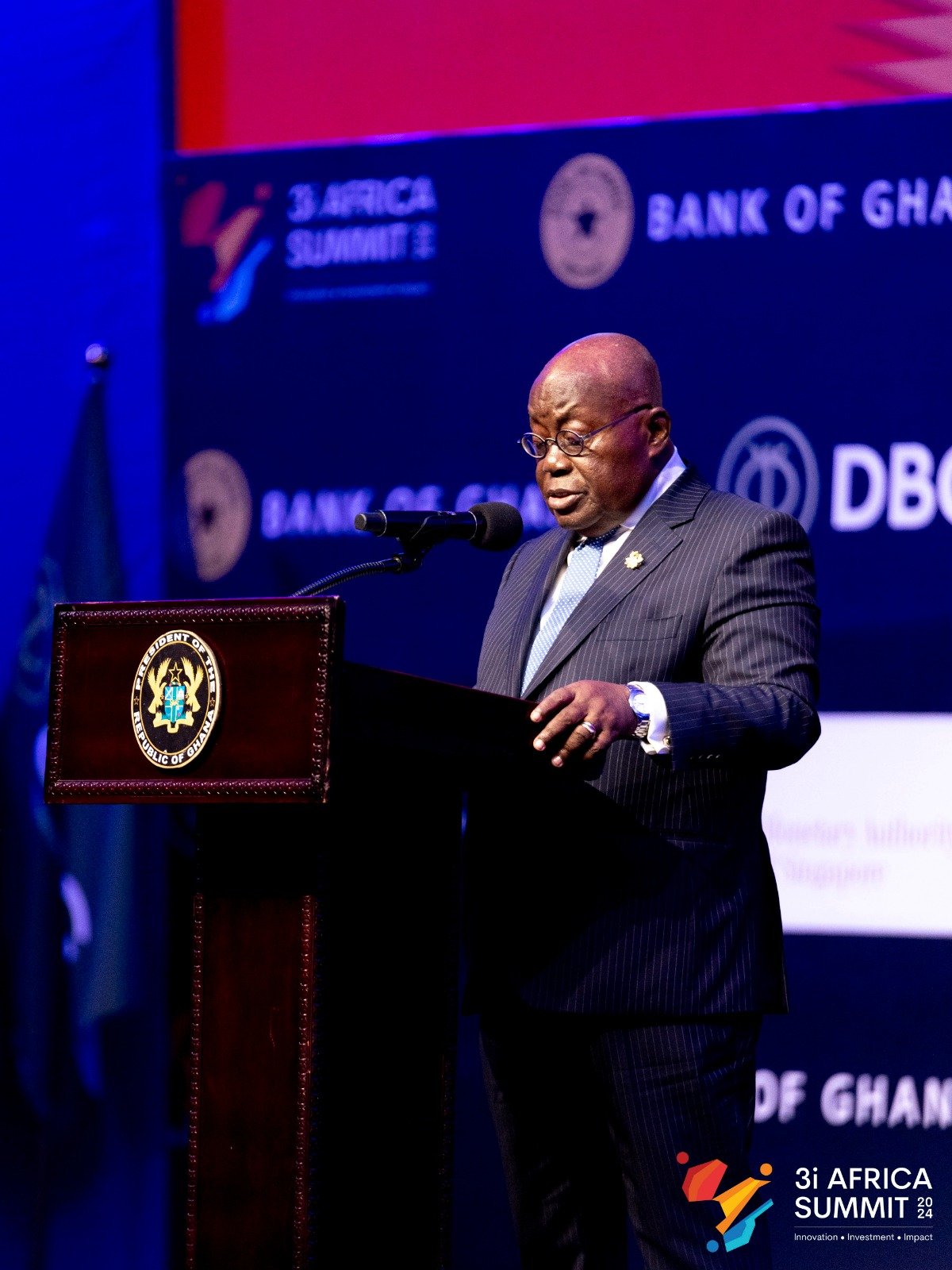
 President Nana Addo Dankwa Akufo-Addo has underscored the need to dismantle policy barriers, and prioritise digital infrastructure expansion across Africa.
President Nana Addo Dankwa Akufo-Addo has underscored the need to dismantle policy barriers, and prioritise digital infrastructure expansion across Africa.
Delivering the keynote address at the 3i Africa Summit yesterday in Accra, the President stressed the need for financial inclusion reaching every corner of the continent to ensure progress.
“Extending financial inclusion to include all Africans, regardless of their income or social status, and empowering the African youth with the skills and opportunities they need to become the leaders and innovators of tomorrow are of the utmost importance,” he said.
He urged African governments to align their policies and regulatory frameworks to create an environment that matches innovation, whilst protecting the rights and interests of consumers.
In his view, prioritizing investment in digital infrastructure, channelling resources to the communities that have been left behind, and “bridging the digital divide that threatens to leave many Africans on the sidelines of the global economy are exceptionally important and crucial.”
Partnerships
President Akufo-Addo called for collaborative partnerships that transform borders and sectors, bringing together the best minds and the most innovative solutions to tackle the challenges confronting the continent.
“We must deepen our partnerships across governments, financial institutions, tech firms and development agencies, working together in the spirit of shared purpose and our wavering commitment to developing the innovative solutions and strategic initiatives that will prepare us towards a more prosperous and equitable future,” he said.
It is in this direction that he disclosed that Ghana had signed a Memorandum of Understanding (MoU) with the ECOWAS Bank for Investment and Development (EBID) to secure a $200 million facility for lending to Small and Medium Enterprises (SMEs).
“In furtherance of our objective of providing financial access to SMEs, the Minister for Finance and president of EBID signed last Friday in Togo, a MOU for $200 million facility to be disbursed through the Ghana Commercial Bank and the Ghana EXIM Bank to SMEs,” he said.
“The role of finance in ensuring that these resources reach SMEs and to monitor their growth cannot be overestimated. The three-year Africa Summit stands as a powerful testament to our collective commitment to shaping a future where difficult finance and technology drive inclusive economic growth and sustainable development,” the President added.
Cry for action
President Akufo-Addo charged the government leaders and business executives to use the summit as an opportunity to forge a united path forward.
“Let us build a continent where borders are mere lines on a map, where digital innovation knows no bounds, and where the aspirations of every African can be realized in form. Let us create a future where the light of progress shines brightly, illuminating the way to a brighter tomorrow for all our people,” he said.
“Together we can create a legacy that will inspire and uplift. Let us seize this moment and make it our own, forged ahead with courage, conviction, and a strong commitment to the vision of a brighter future for all Africans,” he further charged.
Role of SMEs
On the importance of small and medium-scale enterprises (SMEs) in propelling growth and job creation, the Minister of Finance, Dr. Amin Adam, disclosed that the focus of the government is to generate growth within the borders of the nation by increasing access to capital.
This is because low financing to SMEs continues to be a critical barrier to the acceleration of growth and development on the African continent.
In Ghana, SMEs constitute 92% of manufacturing, 70% of growth and provide 80% of jobs.
“This cannot be achieved without a strong fintech infrastructure, an important requirement to address the efficiency of delivering capital to SMEs and reducing the risks of recovery of funds by financial institutions,” he said.
Dr. Amin Adam further disclosed that “the Ministry of Finance is finalizing an SME financing strategy which has components such as direct lending to SMEs, providing guarantees to financial institutions, reducing the cost of borrowing and supporting skills and innovation in the SME ecosystem through fintechs.”
He pledged his commitment to harnessing the potential of Ghana’s fintech landscape to drive sustained economic growth and progress, adding that it will be done “by leveraging the collective knowledge, innovation, and dynamism of our fintech sector to unlock new opportunities, generate employment, and accelerate progress towards overarching development goals.”




